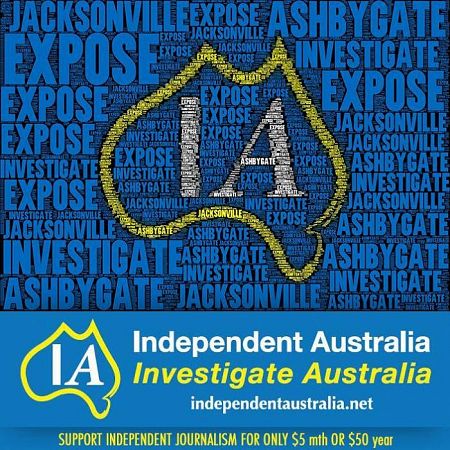There are all too few super-heroes of colour, but one of the best super-hero movies of them all is the newly released Black Panther. Entertainment editor John Turnbull reports.
Black Panther
Directed by Ryan Coogler (2018)
With global box office receipts of over $1 billion and counting, Black Panther is now the second highest grossing superhero movie of all time. For a movie starring a virtual unknown (Chadwick Boseman) and directed by a guy best known for a Rocky spinoff, this is a spectacular achievement. The fact the cast is made up almost entirely of actors of colour should be neither here nor there, but it highlights a serious issue within the wildly successful comic book movie genre. But more on that in a moment…
Set mainly in the fictional African nation of Wakanda, Black Panther tells the story of newly crowned king T’Challa, returning home after the events of Avengers: Civil War to find his throne under threat from factions from within his own country. Challenged by wronged countryman Erik Killmonger (Michael B Jordan) and sleazy international arms dealer Ulysses Claue (Andy Serkis), T’Challa must face his fears and rise above to become the leader his nation needs him to be.
While hitting all the standard superhero movie beats (including a slight over-reliance on CGI towards the end), Black Panther has far more depth than many of its contemporaries, addressing themes of tribalism, destiny and the complicated web that is African politics. There are no easy solutions in this movie and punching people makes things worse as often as it makes things better.
There is not a single bad performance in Black Panther. Chadwick Boseman shines as the conflicted T’Challa, torn between protecting his technologically advanced nation and making the world a better place by sharing their knowledge. Lupita Nyong’o is fierce as T’Challa’s longtime friend and former lover Nakia, while Danai Gurira brings a regal nobility to Okoye, leader of Wakanda’s all-female praetorian guard. Martin Freeman (The Office) reprises his role as CIA Agent Everett Ross with a light touch, and Andy Serkis proves that he’s more than a motion capture guy with a truly grimy performance as Ulysses Klaue.
While all of the above are fantastic, the movie is stolen by Michael B. Jordan. Far from a one-note villain (see most DC movies) Jordan brings rage and pathos to Erik Killmonger, a native Wakandan unfairly exiled from the country as a child. Some readers may remember Jordan from The Wire, where he played ambitious drug runner Wallace, while the less fortunate may remember him as the best part of the truly awful Fantastic Four movie.
Full credit must go to director Ryan Coogler, who previously worked with Jordan on both Creed and Fruitvale Station. A talented director unafraid to make a political statement (watch Fruitvale Station), Coogler wisely lets the material carry the message, resulting in something of a rarity; a superhero movie that could truly be considered art.
Verdict: 8/10
Superhero Diversity
It would be disingenuous to suggest that diversity was the main reason that people went to see Black Panther; it also happens to be a highly entertaining movie. But the fact remains that there are very few movies about superheroes that aren’t White.
To be fair, there have been a few comic book movies with African American leads, most notably the Blade trilogy starring Wesley Snipes. Playing a "daywalker" vampire intent on wiping out his own race, the films have some questionable themes, but the first two are entertaining and stylish in equal measure.
You’ve also got Storm from the X-Men movies – a character sidelined when actress Halle Berry asked for more screen time – and the laughably bad Catwoman (also played by Berry). Getting a bit more obscure, there’s also Meteor Man (Robert Townsend), Blankman (Damon Wayans) and Hancock (Will Smith), three pretty awful movies which treat their main characters as a joke — hardly an aspirational thing for young people to look up to.
There’s also the issue of the naming convention, an unfortunate hold-over from the casually racist era, when many of these characters were created. Black Panther: Black Lightning, Black Vulcan, Black Goliath. Do you see a pattern emerging?
If the situation is bad for African Americans, consider for a moment the plight of young Asian cinemagoers. Can you name one mainstream Asian superhero depicted on the big screen? A quick internet search might bring up Black Mask, a near-unknown Jet Li flick from 1996, along with a bunch of low budget films made in Hong Kong and Korea, but if you can name a single Asian superhero from a Marvel or DC movie I’ll give you a cookie.
“But it’s the source material!”, I hear you say. Nope. For the last dozen or so years, comic books have been making an effort to embrace diversity, introducing an Hispanic Spider-Man (Miles Morales), a Pakistani Captain Marvel (Kamala Khan), a Korean Hulk (Amadeus Cho) and an entirely Chinese version of the Justice League. But have any of these characters made it to the big screen? Not so far…
Fortunately, a billion dollars changes a lot of people’s minds, even out-of-touch Hollywood executives. As Wonder Woman’s success led to other female superhero movies getting the green light (Captain Marvel with Brie Larson has the potential be great) there is a chance the success of Black Panther will lead to an explosion of diversity in superhero movies — but I’m not holding my breath.
Books by John Turnbull are available on Amazon and Kindle, including supernatural thriller Damnation’s Flame; action/romance Reaper, black comedy City Boy and travel guidebook Bar Trek: Europe. Damnation's Flame by John Turnbull is also available in paperback in the IA store HERE (free postage).

This work is licensed under a Creative Commons Attribution-NonCommercial-NoDerivs 3.0 Australia License
Monthly Donation
Single Donation
Subscribe to IA. It's diverse.











